Schülerhilfe is a big tutoring company from Germany that has been around since 1974. It offers extra lessons in math, German, English and many other school subjects for all grades. It has over 1,100 centers in Germany, Austria and also works online. An image of an online tutoring session is shown below.
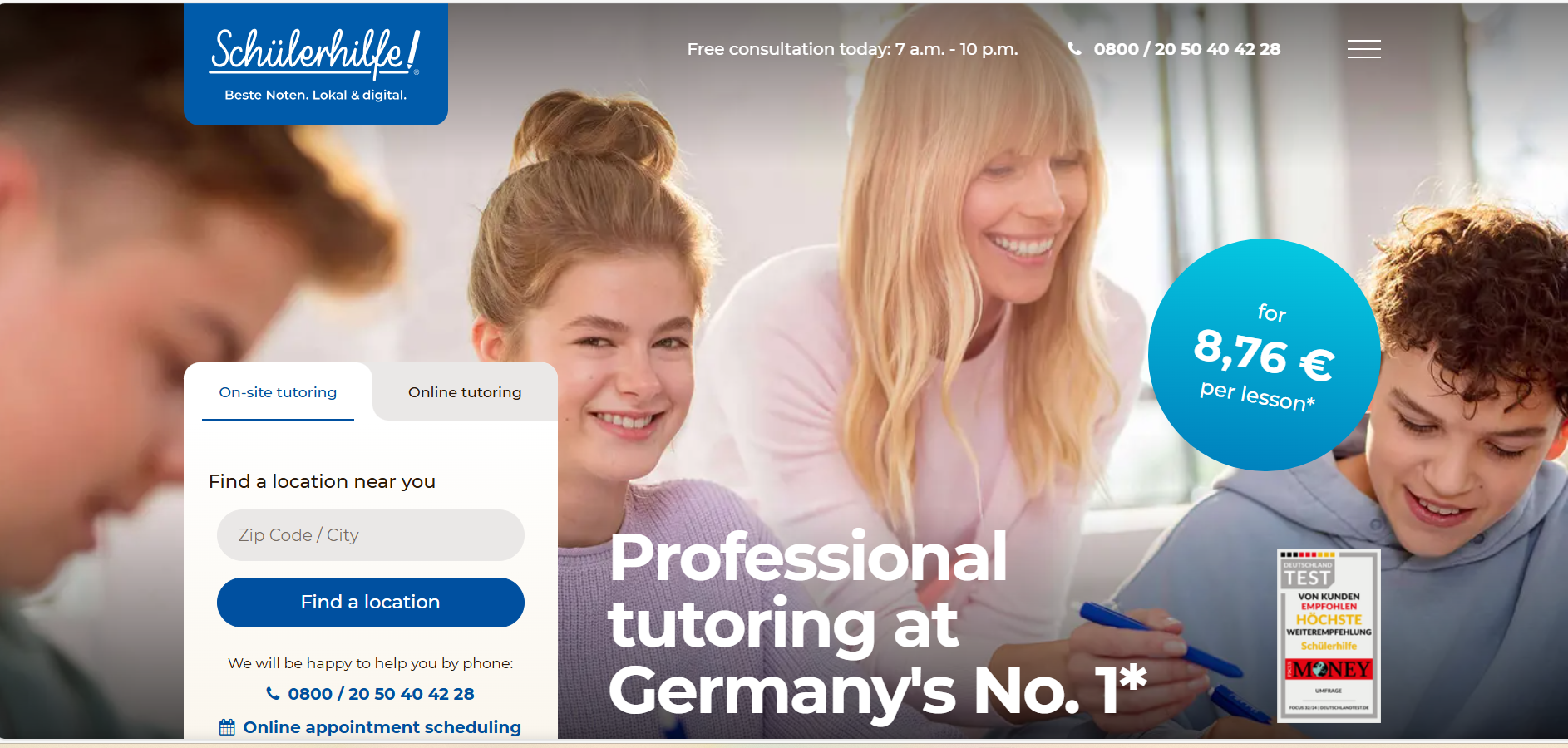
In this example, a Schülerhilfe tutor is teaching a student by video chat from home. The teacher smiles at the student on the laptop screen. Online tutoring works like a video call: the tutor and student see each other and can share materials on the screen. This way, students can get help at home as if they were in a center.
Schülerhilfe is very well-known in Germany. A study notes that Schülerhilfe and another big chain cover about half of the German tutoring market and have centers in almost every town. German families spend over a billion euros each year on such tutoring. In Germany, Schülerhilfe is often rated #1 for customer satisfaction. This means most parents give it very high marks. The company stresses that tutors are qualified and that students gain confidence and better grades with its help.
Reviews and Testimonials
Reviews of Schülerhilfe are mostly positive. For example, Schülerhilfe reports that over 94% of customers are very satisfied with the tutoring. On independent sites, eKomi shows a 4.5/5 rating (96.6% positive). Customers on Schülerhilfe’s own site say things like “the teachers are nice and my grades got much better” and “the customer service is great and the quality of teaching is very good.” These comments suggest parents see real improvement and friendly, helpful staff.
However, some feedback is critical. In a parenting forum, one mother said it felt more like “homework supervision” than real tutoring. She wrote that tutors gave worksheets to groups of 4–6 children and did not explain answers afterwards. Her child’s grades did not improve, and she found a private tutor who was cheaper and more effective. She also warned that cancelling early led to extra fees that were not clear upfront.
In a Q&A site, one student enthusiastically wrote, “I recommend it to everyone!!! I went from a grade 6 to a 2 in math with Schülerhilfe”. But another comment, from someone who worked as a tutor there, noted that results vary a lot by student and tutor. Some students made big progress, others not as much. She suggested switching tutors if needed.
Is Schülerhilfe legit? Yes. It is a long-running, ISO-certified tutoring group (founded in 1974) and is often called “Germany’s No. 1” tutoring service. It has quality certificates and a franchise model like big brands. Reviews and tests show it often wins awards for customer satisfaction. Legitimate means it is real, well-staffed, and follows consumer laws. Just be aware of contract rules (see Pricing section).
Pricing
Pricing Range: Schülerhilfe prices vary. On its website, it advertises lessons “from €8.76” per session. In other words, some deals can cost about €8.76 for 60 minutes, which is very low (roughly $9.5, £7.5, AED 35, A$14). However, this low rate typically requires signing up for a package of several hours per week under a long contract. For example, one promotion was €8.76 per lesson for 4 lessons a week with a 24-month contract. Without a deal, prices are higher. (For context, some online tutoring platforms charge $15–60 per hour)
- Basic lesson: €8.76 per hour (approx. $9.5, £7.5)
- English language training: €15.48 per hour with contract
- Holiday course (special offer): 10 lessons (45 min) for €39
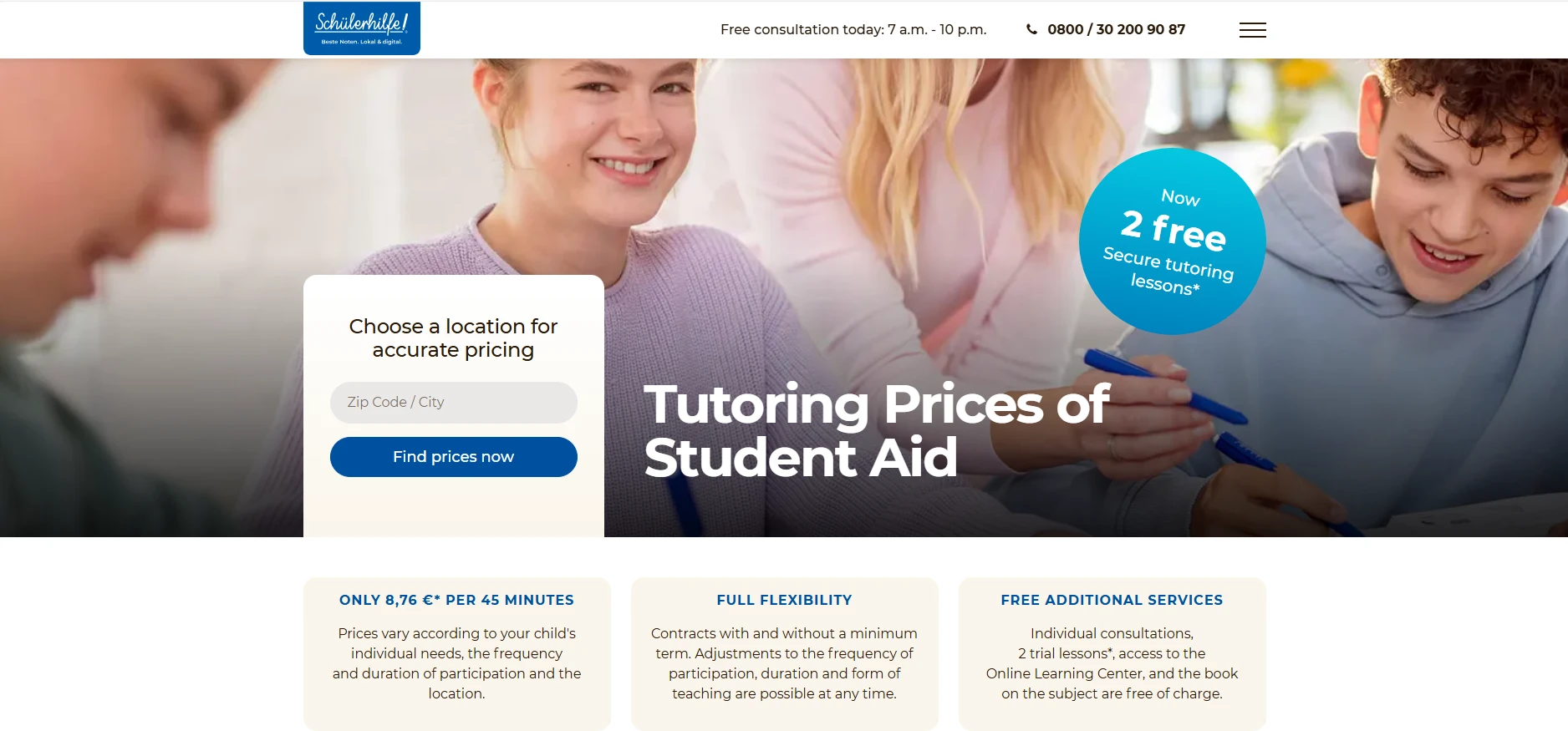
What Students Say: Many students and parents say the lessons are “worth it” because grades improve. Some report jump in marks after a month or two. A reviewer said their daughter was 1-2 grades higher and had more fun learning. On the other hand, others say it felt expensive for group teaching. The mother above said a private tutor was cheaper. Another user on AskMeOffers gave mixed ratings: some rated it “excellent” but others said “terrible” (29% rated it terrible) in a voting poll. This suggests experiences vary: some think it’s good value, others not.
Hidden Costs: Be careful about fees and contracts. Some parents noted extra charges. For example, one parent warned of a “one-time enrolment fee” (Anmeldegebühr) up to €69 that can be added depending on location. Promotions may require signing a long contract (e.g. 12 or 24 months) to get the low hourly rate. If you cancel early, the remaining hours may be billed at a higher rate – something one parent called “misleading”. Always ask exactly what a signed deal includes. Schülerhilfe’s FAQ says they offer different contract lengths and aim to be flexible, but in practice it may depend on the local center.
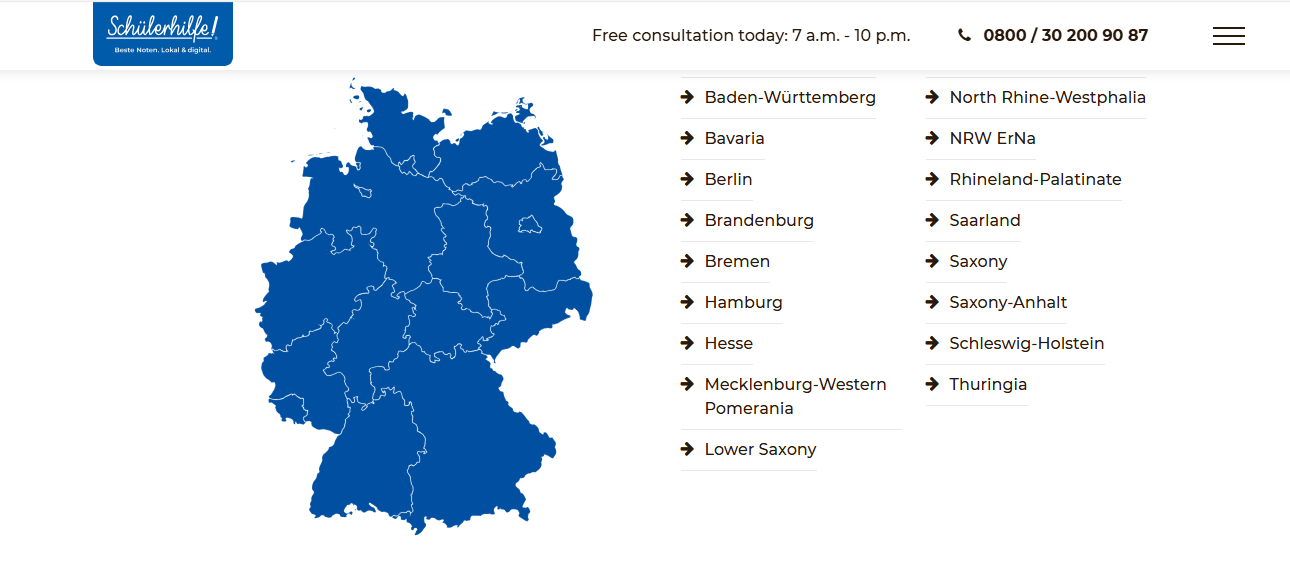
How Pricing Works: Typically, you pay monthly, not by single class. The fee covers a set number of hours per week. The more hours or the longer your contract, the lower the per-hour cost. Lessons are usually 90 minutes (a double lesson) in group settings. The advertised €8.76 price was for two 90-minutes sessions per week under a 24-month plan. Without a contract deal, you will pay more. Each center may set rates and fees slightly differently, so you should get a detailed quote from the nearest location or online office.
Free Trial: Schülerhilfe offers a free trial lesson (“Gratis Probestunde”) so you can test the service. This lets you try online or in-person tutoring at no cost. It helps see if the tutor and format suit the student before paying.
Refund Policy: In Germany, if you sign a contract in person at a center, there is normally no 14-day cooling-off period as with online shopping. The law’s 14-day cancellation only applies to distance contracts. That means once you sign up at a local center, you generally cannot get your money back after 14 days. If you signed up online or over the phone, check if the usual consumer law applies (it usually does). Before signing, ask if there is any satisfaction guarantee or refund right; usually any cancellation must follow the contract terms.
Alternatives
Many other tutoring options exist in rich countries. Here are some top alternatives:
- My Engineering Buddy (MEB) – An online tutoring platform focused on engineering and advanced STEM courses for college students. Offers 1-on-1 help worldwide (US, UK, Australia, Gulf). It serves over 10,000 students with a 97% satisfaction rate and rates of ~$20–35/hour.
- Tutor.com – A US-based online tutoring company founded in 1998. Connects students of all levels to tutors via a virtual classroom. Known for being owned by a major education group and for providing help 24/7. It provides personalized, one-on-one help for students of all ages, from school to college level, with services like live tutoring, assignment assistance, and test prep. Tutor.com is especially suitable for those seeking flexible, on-demand learning in English, making it ideal for international or bilingual students looking for quality academic support outside the traditional German tutoring system.
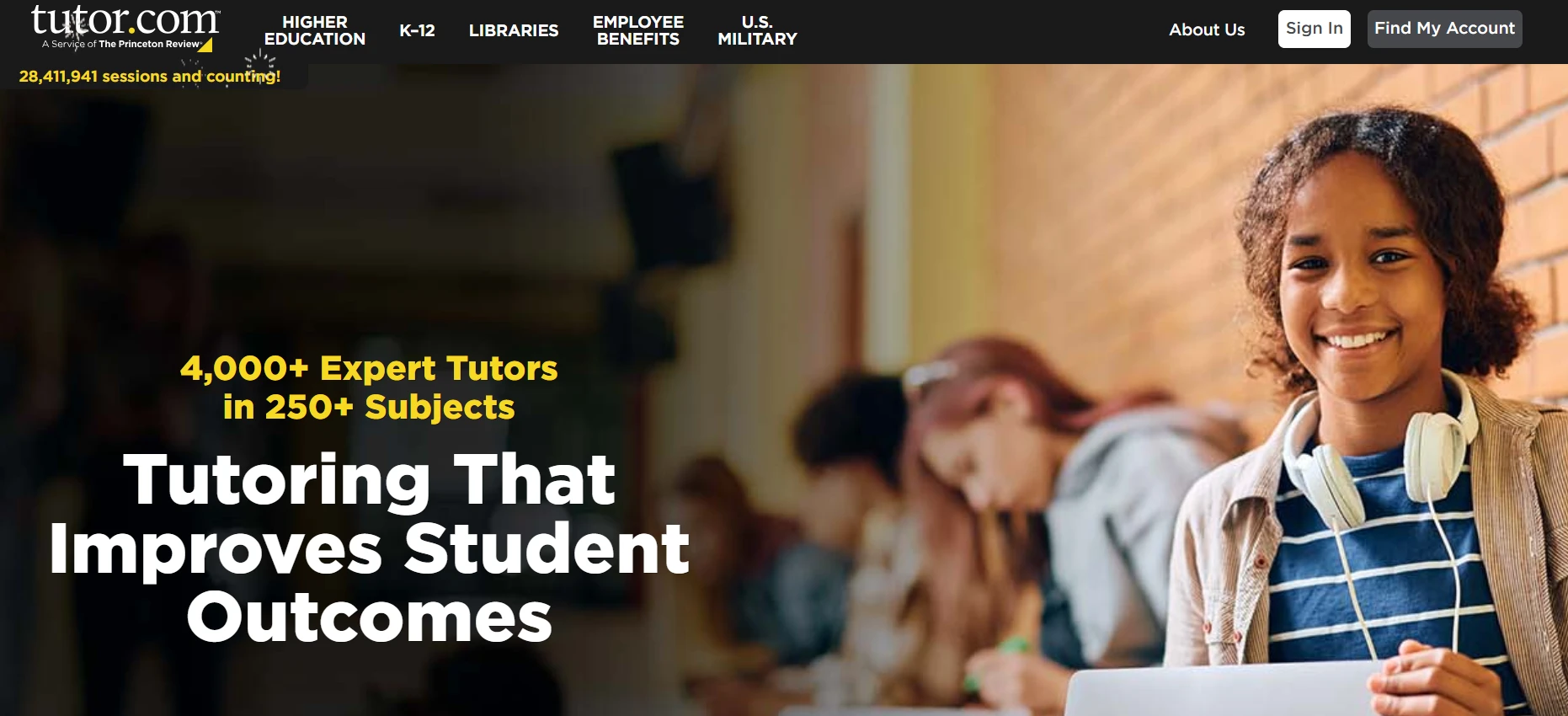
- Varsity Tutors – A large US platform (now part of Nerdy Inc) providing live online (and in-person) tutoring. They offer many subjects and boast hand-picked tutors. Plans there start around $60 per hour. An excellent alternative to Schülerhilfe is Varsity Tutors, a U.S.-based online learning platform that offers personalized, one-on-one tutoring in a wide range of subjects for students of all ages. It provides live instruction, test preparation, homework help, and even small group classes across academic, professional, and enrichment topics. Varsity Tutors uses a smart matching system to connect students with qualified tutors and offers flexible scheduling through its online platform. It’s a strong choice for learners seeking high-quality academic support in English, especially those following international or bilingual curricula
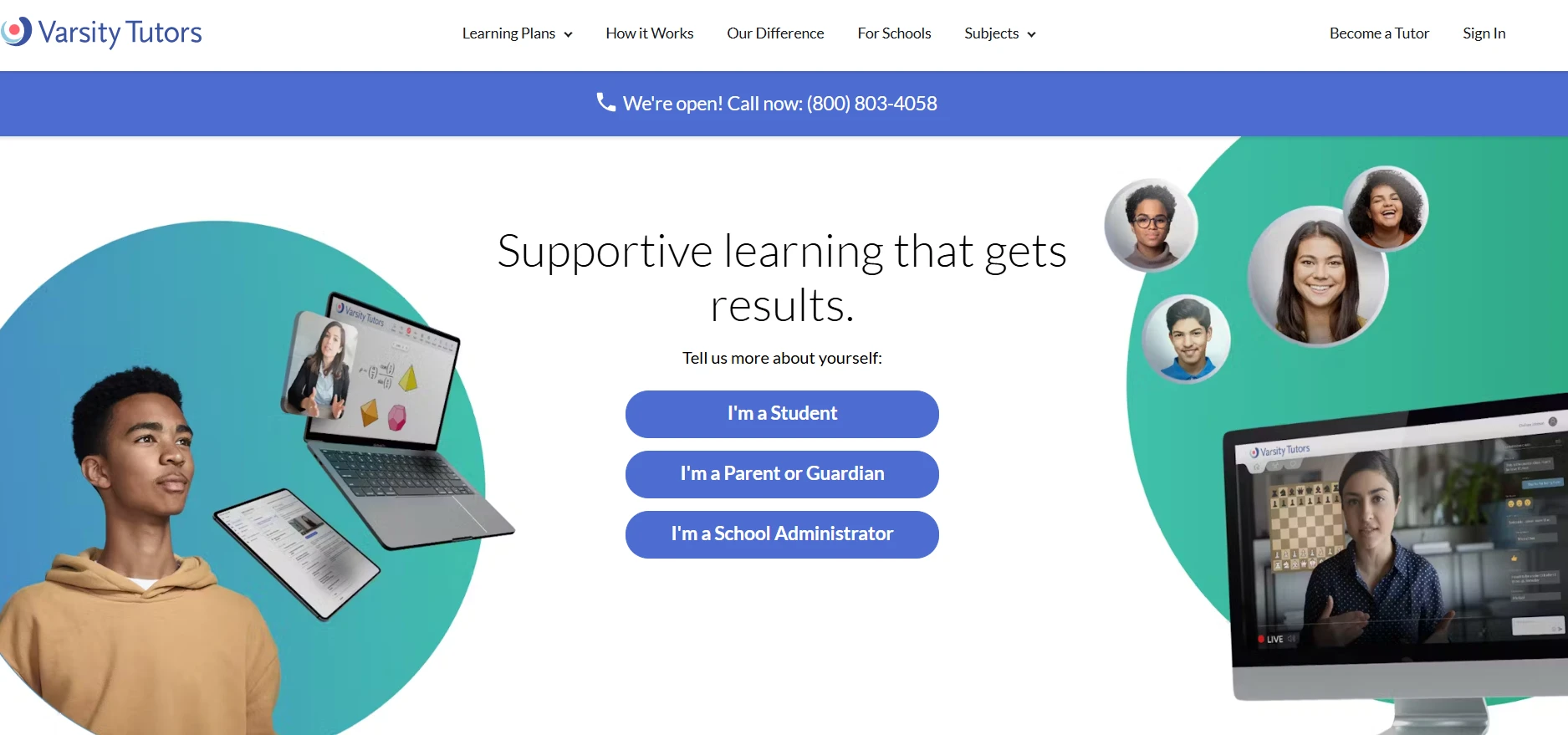
- Wyzant – An American tutoring marketplace founded in 2005. It lets students choose from thousands of tutors in 300+ subjects. Prices vary by tutor and subject. It offers help in a wide range of subjects, from school-level academics to university and professional topics. Students can browse tutor profiles, read reviews, and choose based on qualifications and hourly rates. Wyzant is ideal for learners who prefer flexibility, direct communication with tutors, and a pay-as-you-go model, especially those looking for instruction in English or following international curricula.
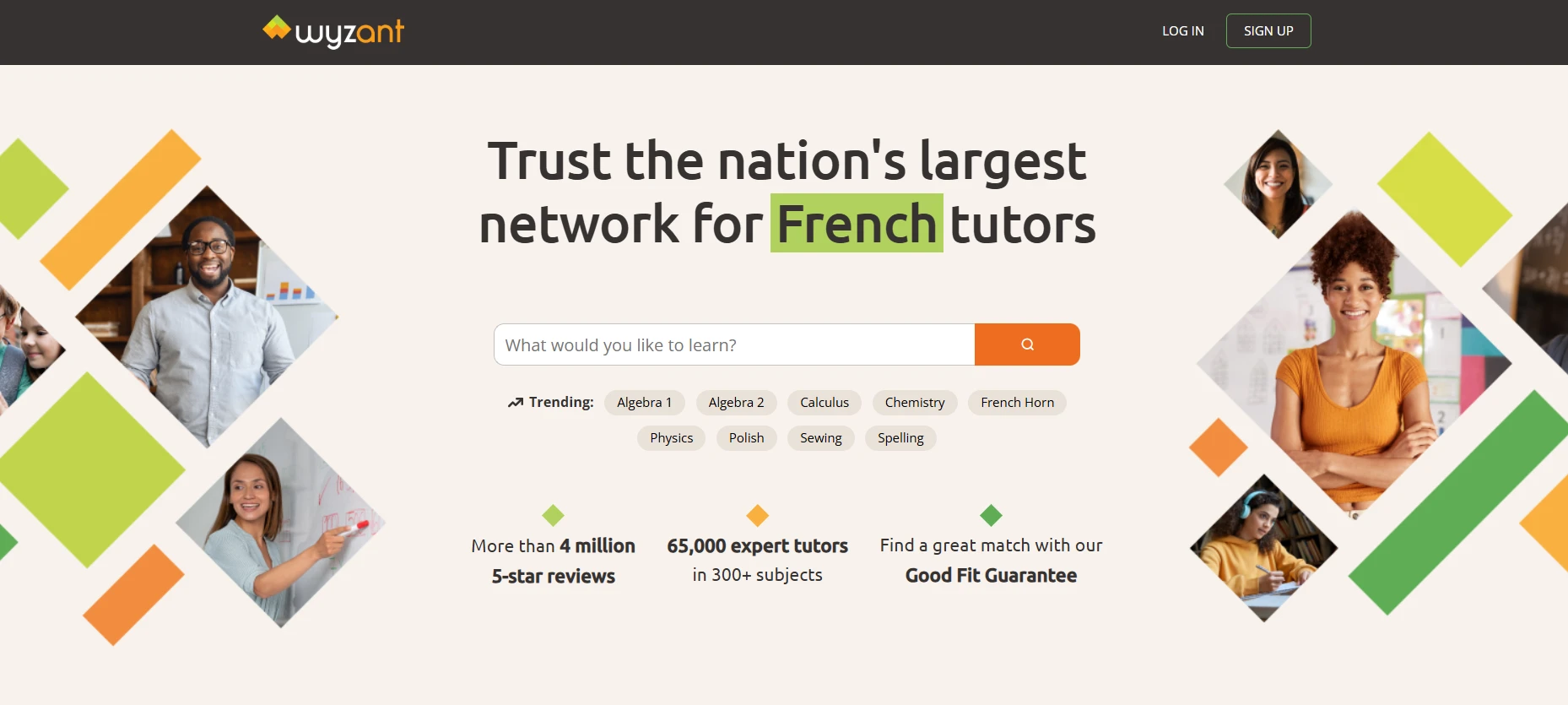
- Preply – Originally from Ukraine, now worldwide, specializing in language lessons. You book one-on-one video lessons with native speakers or experts. Prices start low (as low as $15/hour) and can be much higher, depending on tutor. A global online tutoring platform that specializes in one-on-one language learning but also offers academic tutoring in subjects like math, science, and test prep. Preply allows students to choose from thousands of tutors based on their experience, ratings, and pricing, with flexible scheduling and lesson plans tailored to individual goals. It’s particularly well-suited for learners seeking personalized instruction in English, German, or other languages, and is a great fit for those following international or bilingual education paths.
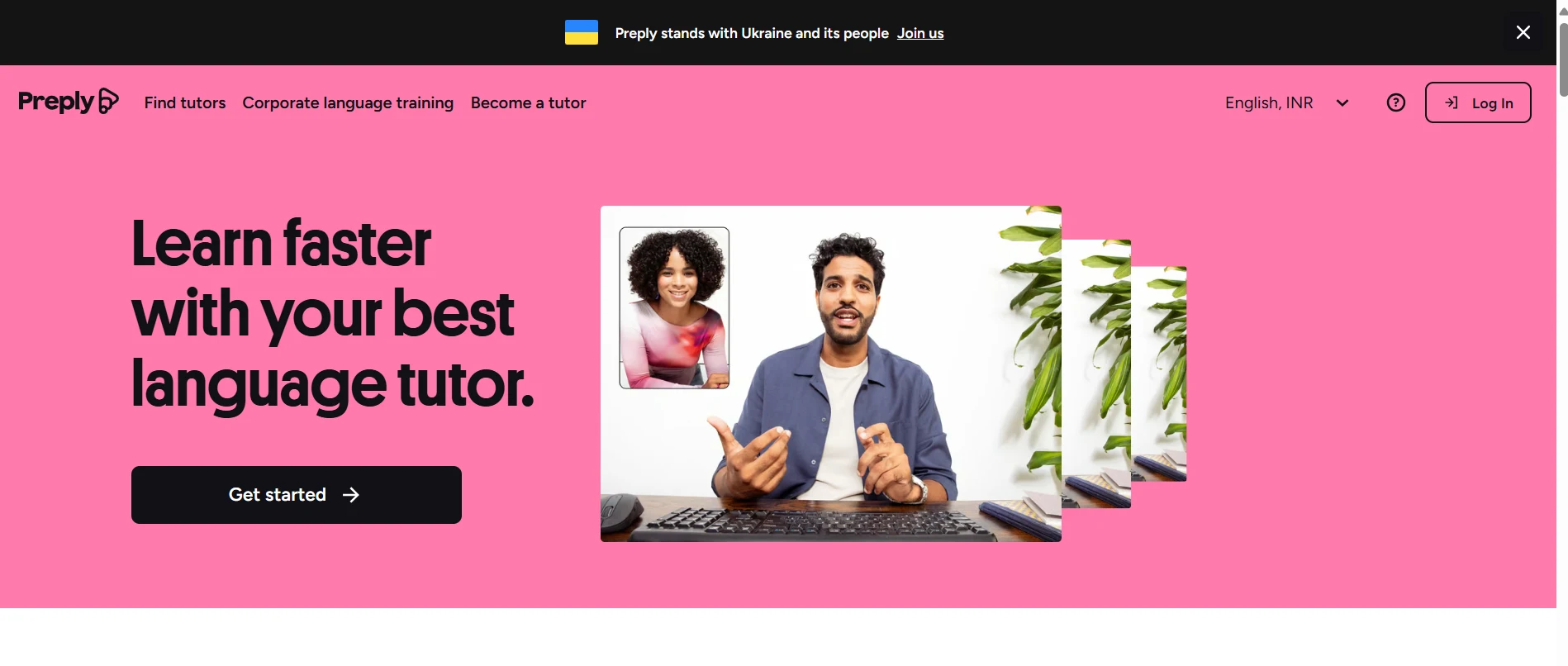
- GoStudent (and others) – A European tutoring startup offering online lessons, mostly for K–12. Also Studienkreis and Lernstudio Barbarossa are major German in-person tutors. In the US, families also use services like Chegg Study or Khan Academy (free video lessons) for study help. Each service varies by subject, price, and format. A fast-growing European online tutoring platform that offers personalized, one-on-one video lessons for school subjects across all grade levels. Based in Austria and operating in Germany and other countries, GoStudent matches students with qualified tutors and provides structured learning plans, regular progress tracking, and flexible scheduling. It’s particularly well-suited for students in the German school system who prefer digital learning environments and want consistent academic support tailored to their curriculum.
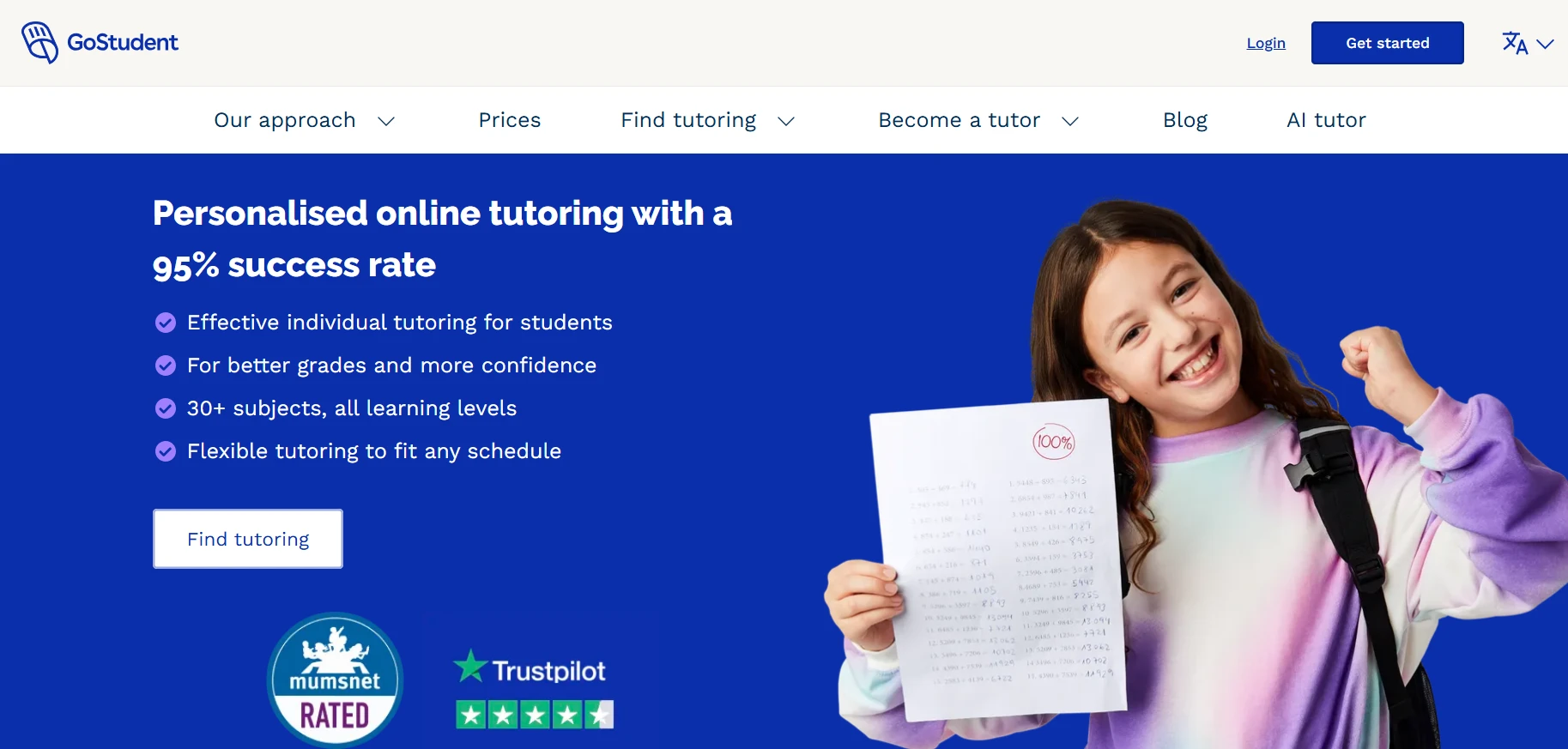
How it Works
For Students
Students or parents first sign up with Schülerhilfe online or at a local center. They discuss their needs in a free consultation: what subjects and how many hours per week. For online tutoring, Schülerhilfe uses video chat: the tutor and student meet on screen, share an interactive whiteboard, and go through worksheets or exercises together. Students can ask questions and the tutor explains like in a classroom. Sessions typically run in the afternoons or after school. Each lesson usually lasts 60 or 90 minutes.
After signing up, students get a schedule. They choose either one-on-one lessons or small group classes (up to 5 kids). The tutor may use Schülerhilfe’s prepared worksheets, textbooks, or the family’s homework as material. The student gets regular feedback; Schülerhilfe promises communication with parents and progress reports. If students want extra practice, the online learning portal (“LernCenter”) offers thousands of exercises, videos and quizzes to use at home.
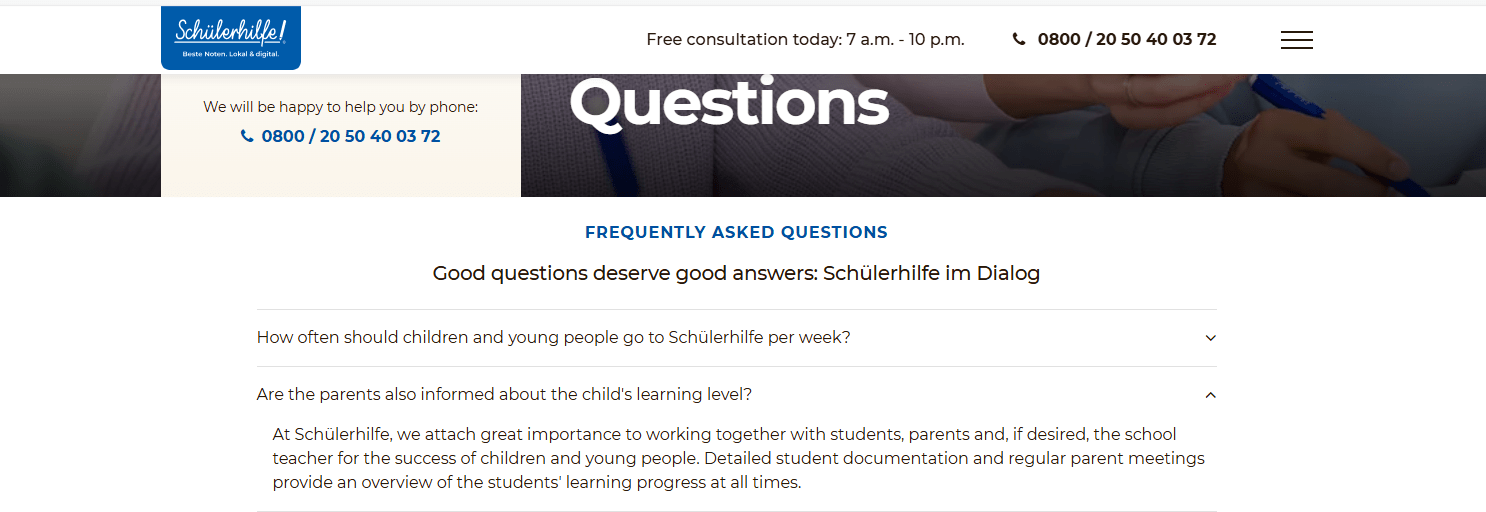
For Tutors
Tutors at Schülerhilfe are usually university students, retired teachers, or academics. They apply online and attend an interview. Qualified tutors are hired as freelancers who set their own hours. They must be good in their subject and like working with kids.
Tutors can teach in any center location, or do online sessions using the company’s platform. Schülerhilfe provides training, textbooks, and access to the Online-LernCenter with exercises and videos. Tutors can choose materials: they may use their own or the provided ones. They teach in small groups or one-on-one, following the schedule they set with the center. Pay depends on region and hours; dedicated tutors can earn up to about €1,000 per month if they teach many hours. They submit attendance and lesson reports electronically.
Company Information
Schülerhilfe is run by ZGS Bildungs-GmbH, headquartered in Gelsenkirchen, Germany. It was founded in 1974 by Jürgen Birkner and Jürgen Gratze}. The founders later sold the company to an American tutoring firm in 1998, but today it is a German-owned franchise business. As of the 2020s, about 66-75% of centers are run by franchise owners. It is one of Germany’s largest education franchises (third-largest after McDonald’s and TUI in 2010). The mission is to improve students’ performance through qualified tutors and supportive groups. Officially, its guidelines stress not just grades but also social skills and confidence.
Schülerhilfe offers tutoring in all core school subjects (math, languages, science, etc.) and exam prep, both in-person and online. It recently expanded to include adult continuing education (IQ-Lingua language courses). In 2020, it rolled out its national online tutoring program. The school partners with teachers and uses small-group learning as its unique format. Every tutor must sign a code of conduct, and the company won awards for service quality.
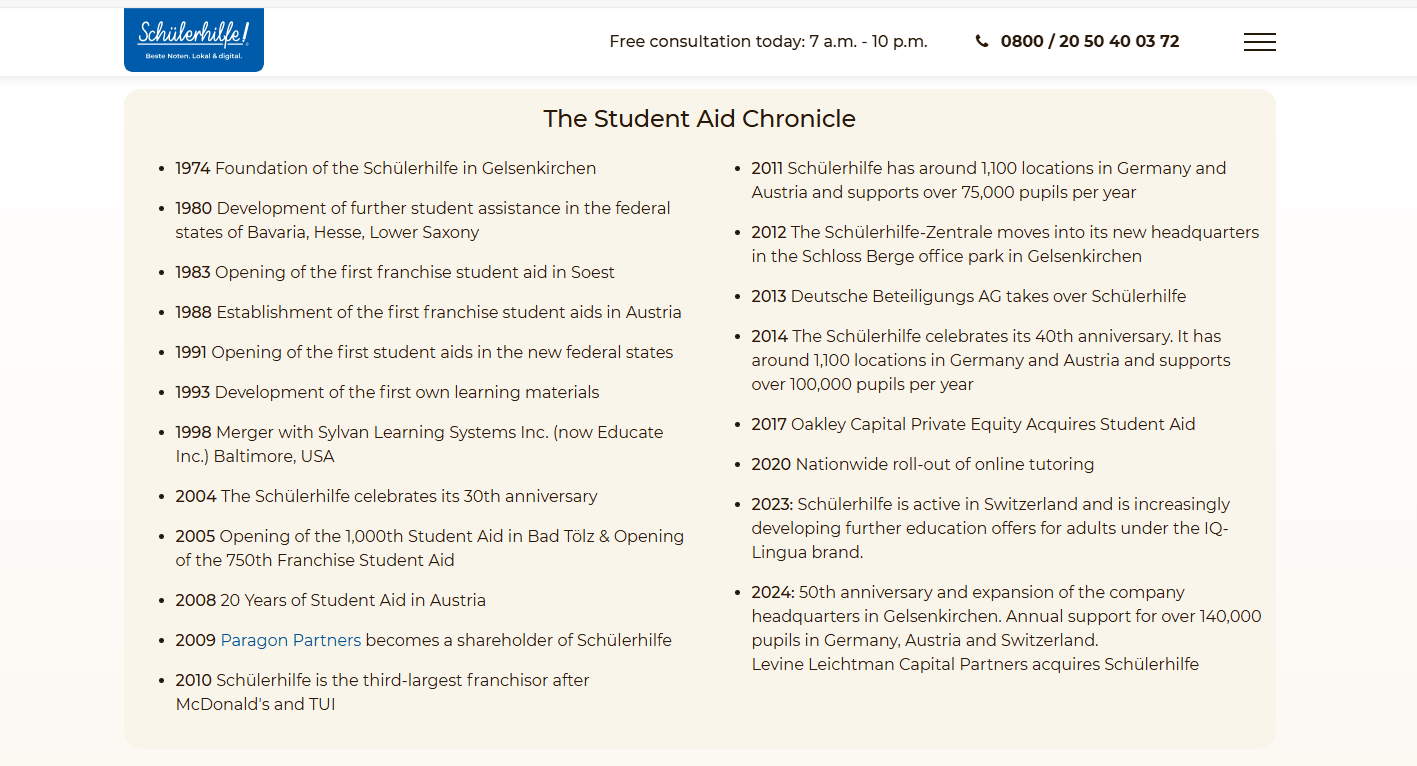
USP (Unique Selling Point)
Schülerhilfe’s USP is its experience and scale. It has 50 years of history in tutoring and over 140,000 students helped each year. It blends in-person centers with online tools, offering “the best lessons at an attractive price”. The group format (1–4 pupils per tutor) can lower costs versus private tutoring. The company touts its high customer satisfaction and multiple awards (focus mag. testsieger, etc.). Its learning portal (with AI assistant “KIRA”) is modern and available to all students. In summary, Schülerhilfe sells itself as professional, trusted extra lessons that deliver results.
Drawbacks
On the downside, Schülerhilfe’s group classes are not fully individualized. Critics say a tutor cannot deeply focus on one student if 4 are working on different topics. Some families felt lessons were more like “supervised homework” than true teaching. Experience depends on the quality of the local tutor; bad matches may need reassigning. Also, there can be hidden fees or strict contracts as discussed above. If you expect one-on-one tutoring only, or need lessons at unusual times, this system might not meet those needs. Finally, Schülerhilfe primarily serves school-level topics, so it isn’t ideal for college engineering or niche subjects (where something like MEB might be better).
Comparison with My Engineering Buddy (MEB)
While both offer online tutoring, Schülerhilfe and My Engineering Buddy have different markets. Schülerhilfe is focused on K-12 school subjects (math, languages, science) and runs centers in Germany/Austria. It uses group classes and has many franchise branches. My Engineering Buddy, on the other hand, is an online-only service aimed at college and grad-level engineering and STEM students worldwide. MEB provides private 1:1 sessions and homework help for subjects like mechanical engineering, physics, etc. MEB tutors are usually subject-matter experts in advanced topics. In short, if you need help with school (or even adult language classes), Schülerhilfe is a go-to in Germany. But if you are in the USA/UK/Gulf doing an engineering degree, My Engineering Buddy is likely better suited.
Customer Support and Policies
Schülerhilfe offers customer support via a toll-free number and a website/app. For example, they have an app where you can quickly cancel a lesson if your child is sick. Each center has its own director (Schülerhilfe-Leiter) who parents can contact questions. Contracts and policies are explained at signup. Officially, the company says contract lengths are flexible and can be adjusted if needed. They also promise regular updates on student progress to parents. In practice, support quality may vary by location. Make sure to note the cancellation policy: often a day’s notice is needed to reschedule without cost. Payment is usually monthly via bank transfer.
Global Reach
Schülerhilfe’s main market is German-speaking Europe. It operates in Germany, Austria, and now Switzerland. It is not directly available in countries like the USA, UK, or Australia. However, the concept of private tutoring is global. In the US/UK/Gulf, parents use local tutoring centers or online services (like those listed above) in place of Schülerhilfe. The demand is similar: families in rich countries also spend lots on private lessons. For example, Chinese and other foreign families send their kids to tutors or international programs. In short, Schülerhilfe itself is a German brand, but the idea of paying for extra academic help is common worldwide.
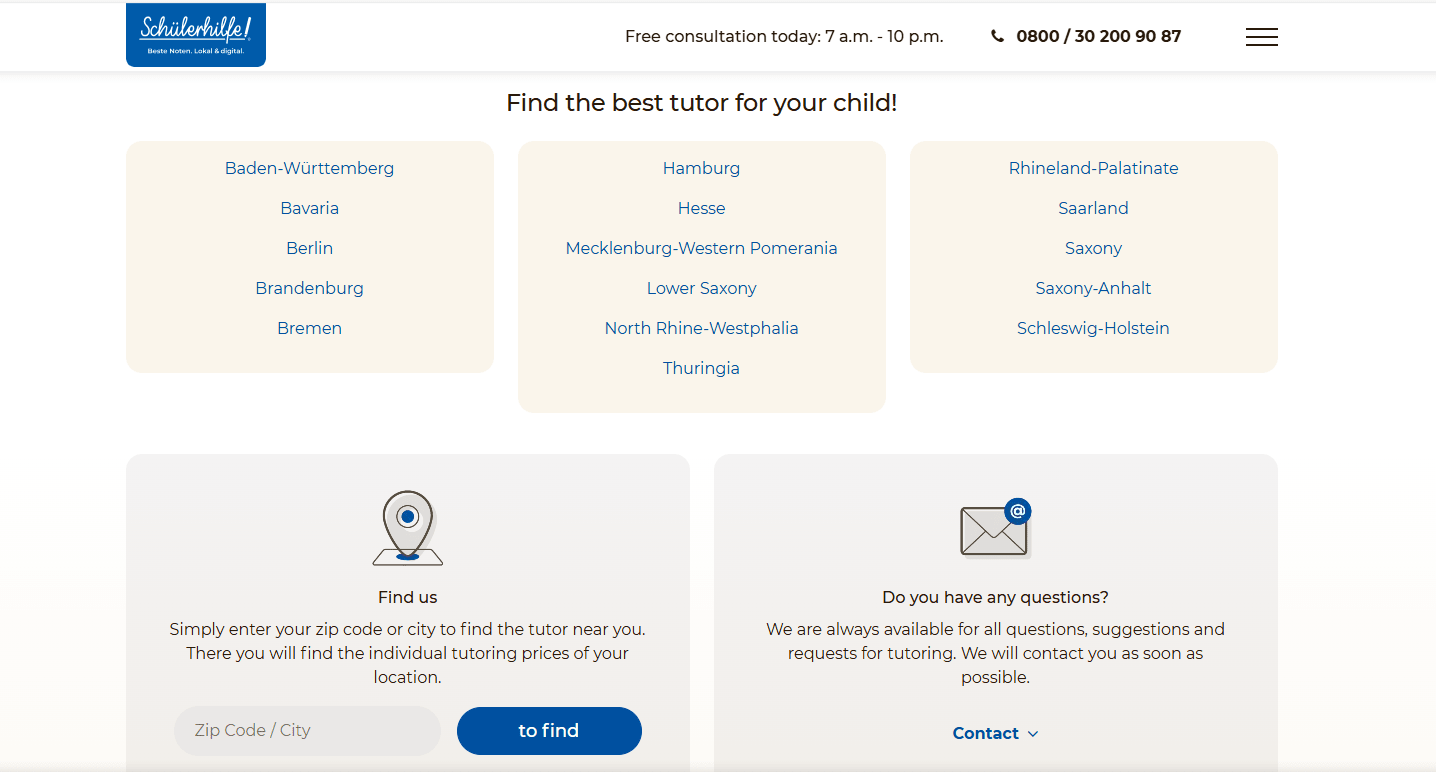
Future Plans
Schülerhilfe has been investing in online learning tools and expansion. It added AI features (learning assistant KIRA) and created new adult courses (IQ-Lingua). The timeline shows it launched nationwide online tutoring in 2020. The company was sold to new investors in 2017 and again in 2024, who are likely to push digital growth. We can expect more online and blended offerings, possibly more languages or tech tutoring. Given global trends, they may also further modernize materials and apps. Officially, their leadership talks about “life-changing learning experiences” and applying technology to education, which hints at more e-learning innovations coming.
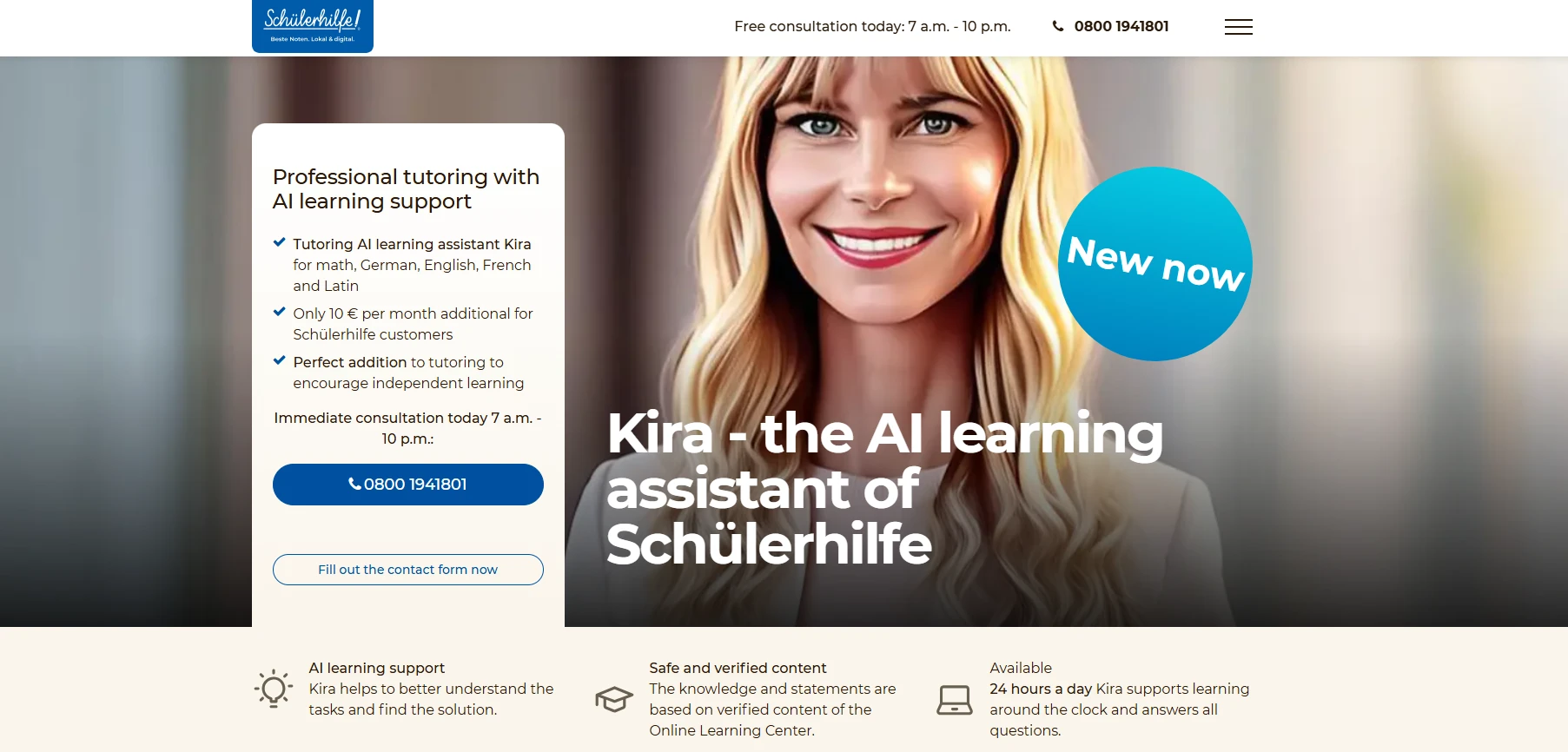
FAQs About Schülerhilfe
- How do I sign up? You can sign up on their website or by visiting a local center. A tutor-coordinator will advise you on schedule and contract.
- What subjects are offered? All main school subjects: math, science, languages, accounting, etc., from elementary to high school levels.
- Can my child switch tutors? Yes, if the fit isn’t right you can request a different tutor or small group.
- What if I miss a lesson? Usually you can reschedule if you inform them (often via the app) in advance, or use a planned make-up session if available.
- Is online tutoring as good as in-person? Many find it very convenient. Schülerhilfe uses interactive tools in video lessons. However, it depends on the student; some prefer face-to-face.
Conclusion
Schülerhilfe is a very large and experienced tutoring service, best known in Germany. Its online and in-person programs cater mostly to school students. Parents and students generally rate it well for improving grades, but some complain about group teaching and hidden fees. Compared to competitors like My Engineering Buddy, Schülerhilfe is broader in subjects but more geared to younger students. Its key strengths are its reputation, certified tutors, and nationwide network. Before enrolling, families should check all costs and contract terms. With the right expectations, Schülerhilfe can be a powerful help for students needing extra instruction.
******************************
This article provides general educational guidance only. It is NOT official exam policy, professional academic advice, or guaranteed results. Always verify information with your school, official exam boards (College Board, Cambridge, IB), or qualified professionals before making decisions. Read Full Policies & Disclaimer , Contact Us To Report An Error


